- Home
- Lisa Smedman
Apparition Trail, The
Apparition Trail, The Read online
The Apparition Trail
by Lisa Smedman
Copyright © 2004 by Lisa Smedman
E-Book Edition
Published by
EDGE Science Fiction and
Fantasy Publishing
An Imprint of
HADES PUBLICATIONS, INC.
CALGARY
Notice
This ebook is licensed for your personal enjoyment only. It may not be re-sold or given away to other people. If you would like to share this book with another person, please purchase an additional copy for each reader. If you’re reading this book and did not purchase it, or it was not purchased for your use only, then please purchase your own copy. Thank you for respecting the hard work of the author(s).
* * * * *
This book is also available in print
* * * * *
Chapter I
A premonition — The Commissioner’s curious summons — My first ride on an air bicycle — A terrible storm — Superintendent Steele’s unusual request — An unsettling dream — Chief Piapot’s defiance — The sergeant’s bluster — Our strange ride back — Death on the sand — My first assignment
I awoke with a start, my heart pounding, certain that I’d heard someone shout my name. Yet all was silent in the darkened barracks. Outside in the night, I heard an owl hoot softly, followed by measured footsteps on the boardwalk that surrounded the parade square: the constable on night picquet making his rounds. His footsteps passed the barracks door, then faded into the night as he walked in the direction of the stables.
Despite this reassurance that all was well, I had an overwhelming sense that ill fortune was about to befall me. The dream I’d just awakened from had been troubling. In it, I’d spotted a carrier pigeon winging its way to me with a message clutched in its feet. A moment later the pigeon was joined by a second, larger bird, and then these two became an entire flock — so many birds that they darkened the sky like a thundercloud. As the flock drew nearer, so too did a sense of dread. The birds were coming for me, calling for me, clawing at me….
I threw off my blanket, which had suddenly become oppressively hot and heavy, and swung my bare feet to the floor. The straw-filled palliasse sagged under me as I fumbled about on the table beside my bed. At last I found the box of Lucifers I had been searching for. Striking one, I lit a candle. Its pale yellow light revealed the sleeping forms of the other policemen in the barracks. Their slow, steady breathing should have further reassured me, but I could not shake my sense of dread. I knew in my heart that some doom lay just beyond the horizon, and would rise with the sun that day.
I consulted my pocket watch. Assuming that it told the time correctly, it was three a.m. — three hours before the morning reveille. Knowing I would never get back to sleep, I scooped up my pipe and my pouch of Imperial Mixture and crept quietly outside the barracks.
I screwed the pipe together, tamped tobacco into the bowl, and lit it with a match. Taking several quick puffs, I coaxed it into a cheerful glow, then savoured a long, slow draw. As I exhaled, I looked up at the full moon, which was just setting in the western sky. I marvelled at how different it looked, these days. Nearly seven years had passed since the comet had struck it, and the moon’s “dark side” was now almost fully turned toward the Earth. Gone was the familiar face of the man in the moon, with its wide, smooth patches of white. It had been replaced by a much more rugged surface — a face as pockmarked as that of an Indian with smallpox.
Although the smoke steadied me somewhat, I was still restless, still gripped by a sense of approaching calamity. I needed something to busy my hands. I knocked out the last of my tobacco and returned to the barracks, then collected up my dress uniform and kit bag. Although the sky to the east was already lightening, I needed more illumination to see by than this false dawn afforded. I walked over to the orderly room, which was brightly illuminated by that wonder of our age: electric lighting.
The detachment to which I had been assigned — Moose Jaw — was one of the first to have been fitted with electrical lights. The blown glass bulbs with their glowing filaments had first been displayed just three years ago, at the Paris Exhibition of 1881, by American inventor Thomas Edison. His invention had been eclipsed, however, by an even more miraculous device that was exhibited for the first time that same year: the perpetual motion machine.
One of these devices sat in the corner of the orderly room, behind a protective metal screen. It stood as tall as a man, and looked like a four-armed windmill, mounted on a wrought-iron tripod. Rods and hinges clattered and squeaked as the hollow brass arms spun round, driven by piston weights inside the arms that alternately fell and were drawn back with each revolution. A coil that crackled with electrical energy was mounted at the back of the device; thick black wires conducted the current from this generator to the pendulous glass light bulbs. They had also been strung up in the inspector’s office, the officers’ mess, and the guardrooms.
The orderly room was currently unoccupied; the constable on picquet duty would stop in only at the end of the night, when it came time to write out his report. I laid my kit bag and uniform on the table that stood under the single electric bulb and pulled up a wooden chair. As I did so, I thought I heard the perpetual motion machine make an odd whining noise, but it may just have been the scuff of the chair across the wooden floor. I fancied that the machine had sped up a little, and the bulb overhead seemed a bit brighter, but I told myself it was only my imagination. Forcing my eyes away from it, I pulled out my brushes and polish, then set to work.
I burnished the brass buttons on the front of my red serge jacket, polished my boots until they gleamed, and whitened my helmet and gauntlets with claypipe until they were as bright as new snow. I even took a brush to my spurs, cleaning every speck of dirt from them. When this was done, I oiled and cleaned my Enfield, then spun the revolver’s cylinder and pulled the trigger several times, watching the hammer rise and fall and ensuring myself that the gun was functioning properly.
Only when everything was in perfect order did I begin to relax. Even so, the sense that something momentous and terrible was going to happen that day did not entirely ease. My nerves must have been wound up more tightly than I’d thought, for when the constable on picquet duty barged into the room, I jumped from my seat. The chair fell over backwards, striking the screen that protected the perpetual motion machine.
The constable, a sandy-haired, weedy lad by the name of Fraser, scooped the chair from the floor and set it upright. He was new enough to the force that he snapped a salute at me, despite the fact that I was out of uniform and in my bare feet. I nodded, and started gathering up my kit to let him use the table, but he stopped me with a hand on my arm. Outside, I heard a trumpet sound reveille.
“I was just going to come and wake you, Corporal Grayburn,” Fraser said. His voice dropped to a conspiratorial whisper. “There’s a telegram, addressed to the Inspector. It concerns you.”
“Oh?” My mouth was suddenly dry. I worked up some spit and tried to swallow, but without much success.
The constable reached into one of the pockets of his jacket and pulled out a folded piece of paper. “This telegram was received at the CPR station just a few minutes ago,” he said, holding it up where I could see it. His narrow fingers were curved in a manner that reminded me for some reason of a pigeon’s foot. I suddenly felt loath to take the piece of paper they held.
“It’s from headquarters,” he added. “And it’s marked urgent.”
Snatching the telegram from his hand, I unfolded it and read. The message it bore — addressed to my commanding officer — was a summons from North-West Mounted Police headquarters in Regina, from no less a personage than Commissioner Acheson Irvi
ne himself. I was to report to headquarters with all due haste. So urgently was my presence required that headquarters was sending one of the new air bicycles to whisk me across the forty miles that separated Moose Jaw and Regina. The air bicycle was expected to arrive at my detachment around noon.
“What does it mean?” I wondered aloud, although I already knew what the answer must be. I could think of only one reason for the urgent summons: the force must have discovered my secret. If so, I faced a minimum of six months’ hard labour followed by a dishonourable discharge. All protestations of my exemplary service over the past five years would be in vain.
Normally, the discovery that a false statement had been made upon recruitment would have been dealt with at the divisional level; my commanding officer would have been the one to handle the charges. But in my case, I’d pushed the deception further than a mere lie or two. And now that I was discovered, it seemed that my case could be dealt with only by the Commissioner himself.
Constable Fraser shrugged and plucked the telegram out of my hand, carefully folding it up again. “I don’t know what it means. It doesn’t specifically say that you’re up on charges, but….”
His gaze fell on my brightly polished boots and pipeclayed helmet, and his eyes widened. This time, his whisper was even softer. “By God — you knew you’d be summoned to headquarters today, didn’t you?”
“I had no idea — not even an inkling,” I said hurriedly, lying about my premonition. I didn’t want the men talking any more than they already were. “I was unable to sleep and needed something to occupy my mind. Nothing more.”
As I scooped up my uniform and kit bag, I heard the perpetual motion machine begin to whine, as if it were under some sort of strain. The constable stepped back, giving me plenty of room to pass, and I moved toward the door. Suddenly, the light bulb overhead flared white. As both of us looked up in alarm, the delicate globe broke and a rain of glass shards fell down onto the floor at my feet. The perpetual motion machine continued to clatter, but the room was suddenly much darker, lit only by the reddish rays of the rising sun.
I opened my mouth to say something, then thought better of it. I decided instead to slip out before the perpetual motion machine went completely awry. Fretting about how I’d explain myself to the Commissioner in Regina, I hurried back to the barracks.
I turned out with the other men to groom and feed the horses, then sat down to my breakfast of coffee, cold beef and bread. I didn’t think that Fraser had told anyone else about the telegram and its summons, but the eyes of the other men were on me nevertheless. Our quartermaster had already stomped through the mess hall, lathered into a fury by the sudden and catastrophic failure of all four of the electric bulbs, and one of the constables who had seen me departing the orderly room that morning quickly put two and two together and realized that I was the cause. An uncomfortable silence fell over the mess hall, and suddenly I wasn’t hungry any more. The beef sat in my stomach like a cold ball of lead, and when the sergeant returned to deliver the telegram that Fraser had shown me earlier that morning, the stomach ache that had been plaguing me for the past few days returned full force.
Now that I knew — officially — about the summons to Regina, I pushed my breakfast aside. I immediately repaired to the barracks, using as my excuse the need to give my dress uniform a going over. When I was satisfied that it was absolutely spotless, I put it on and conducted a final inspection in the mirror. Everything appeared in order: scarlet Norfolk jacket, heavy blue riding breeches with a gold stripe down each pant leg, service belt with Enfield revolver holstered and snapped in place, high brown boots with steel spurs, white leather gauntlets and helmet.
I was excused from fatigue duty that day, and so I spent the rest of the morning pacing the boardwalk in front of the barracks, waiting for the air bicycle to arrive. The summer sky was a clear blue, marred only by a few dark clouds on the eastern horizon. By noon the air was hot and dry. There wasn’t a breath of wind, and spit dried before it hit the sun-baked ground.
At last I spotted the air bicycle in the eastern sky. I watched it warily as it descended. It looked like an ordinary bicycle, but with two seats and two pairs of handlebars, suspended from a large, inflated sausage of a balloon. The operator sat on the foremost seat, intent upon flying the craft. His feet rested on pegs, instead of bicycle pedals, since the motive power for the air bicycle came not from a man’s muscles but from a perpetual motion device.
I have always been fascinated by mechanical workings, despite the strange effect I seem to have upon them. I prayed that the perpetual motion device that powered the air bicycle would be an exception to the rule — that my premonition of danger this morning wasn’t because it was destined to malfunction in mid-flight.
The device looked sturdy enough: a large, hollow disc of metal, affixed to the frame of the air bicycle by a complicated system of gears and chains in the spot where an ordinary bicycle’s larger wheel would be. I had seen diagrams of similar devices, so I knew that the wheel was filled with steel balls that tilted and fell, propelling it in a circle. The wheel was perfectly counterbalanced so that its rotation went on indefinitely, once it had been set in motion. The balls inside it made a clattering noise, like beads rattling against the sides of a tin cup.
Jutting out from the bicycle on either side were sails that flapped like wings, and at the front and rear were lightweight propellers, made of sheets of duck cloth that had been stretched over metal frames. The air bicycle’s operator — a member of the Mounted Police who was wearing balloonist’s goggles under his pillbox cap — adjusted the flapping of the sails by means of hand cranks, causing the air bicycle to descend. He meanwhile alternated the motive force between the fore and aft propeller by means of a large lever, nudging the air bicycle forward and back to bring the craft to a landing.
I watched the air bicycle’s descent, which was somehow graceful and ungainly at the same time. My father would have been fascinated by such a mechanism. I wondered — had he lived to see perpetual motion become a reality — whether he would have denied its existence, just as he had denied everything else that he deemed “impossible” or “mere coincidence.”
Shouting at a constable, who was puffing on a pipe, to stay clear, the operator set the air bicycle down with a thump on its four small landing wheels in the middle of the parade square. The propellers stopped turning as he threw the lever into neutral but the wings continued to flap, raising a cloud of dust. He obviously was under strict orders not to tarry in Moose Jaw, but to bring me to Regina posthaste.
A handful of men ventured forth from the shade of the barracks to view the machine at close range. They stood around like boys admiring a grand new toy, casting the occasional envious glance in my direction. I, however, was more concerned with the dust that was settling upon my uniform. After taking such care to make myself as presentable as possible, I was covered head to toe in the stuff.
The operator lifted his smoked-glass goggles from his eyes and shouted over the creaking of the air bicycle’s wings at the group of constables. He smacked dusty lips. “Is there any cold water to be had?”
“I’ll fetch you a cup,” one of the constables said, and hurried inside.
I hoped that they remembered to serve him the boiled water. The springs around Moose Jaw had turned miasmic, of late, and several of the men were down with typho-malaria. The last thing I needed was an operator who was suffering from fever and dysentery. He looked fairly robust, though, with broad shoulders and wide, wind-burned cheeks. Despite the distance he’d just traveled his eyes were bright under his thick dark hair.
“Are you Corporal Marmaduke Grayburn?” he asked as I approached.
“I am.”
He jerked a gloved thumb at the seat behind him. “Then climb aboard the Raven.”
I glanced up and saw the name of the air bicycle painted in neat yellow letters on the side of the balloon. I shuddered at the thought of being borne aloft by a bird of such ill omen, but
settled onto the seat, hearing it creak beneath my weight, and gripped the handlebars in preparation for our ascent.
While there were some in the North-West Mounted Police who said the air bicycle would eventually replace the horse, I wasn’t so sure. It was an extremely ungainly craft, difficult to master, and subject to the whims of the wind. The air bicycle was also expensive; thus far, they had been used only by officers deployed on important police business — and by a corporal responding to an urgent summons from his Commissioner.
My premonition of impending calamity grew as I settled into the seat; I had to steel myself as I waited for the operator to drink his water and ready his craft for the skies. The feeling wasn’t quite as urgent or as clear, however, as the premonition I’d had back in November of 1879, just a few months after joining the police.
On that fateful day, I’d been working at the horse camp upriver from Fort Walsh, and had forgotten an axe a mile or so up the trail. When I considered returning for it, I felt an absolute dread that froze me to the spot. It came to me with fantastic clarity that, were I to ride up that trail, I would die.
My friend George Johnston laughed at my foolishness, and rode back himself to fetch the axe, ignoring my pleas for him to remain in camp.
He never came back.
The next day, a search party found George’s body lying in the brush and snow at the bottom of a coulee. He’d been shot in the back. The search party started to follow some horse tracks that crossed George’s trail — unshod hooves, which meant Indian ponies — but a chinook came up suddenly and melted the snow, obliterating the trail. Even the remarkable Jerry Potts, a half-breed scout who could track a fly across a pane of glass, couldn’t find any trace of the hoof prints after that.
We later learned that a Blood Indian by the name of Star Child had boasted of committing the crime, but when he was brought to trial two years later, the jury acquitted him. Their final verdict: George Johnston was murdered by person or persons unknown, thought to be Indian.

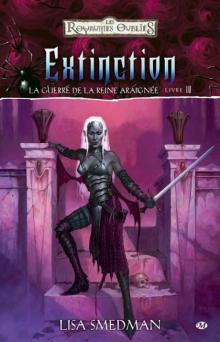 Extinction
Extinction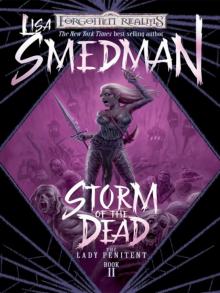 Storm of the Dead
Storm of the Dead Blood Sport
Blood Sport The Lucifer desk (s-2)
The Lucifer desk (s-2) Vanity's Brood
Vanity's Brood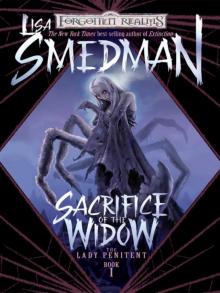 Sacrifice of the Widow
Sacrifice of the Widow Vanity's brood hos-3
Vanity's brood hos-3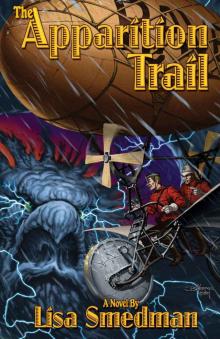 Apparition Trail, The
Apparition Trail, The Venom's Taste
Venom's Taste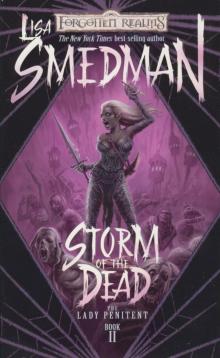 Forgotten Realms - The Lady Penitent - Storm of the Dead
Forgotten Realms - The Lady Penitent - Storm of the Dead Viper's kiss hos-2
Viper's kiss hos-2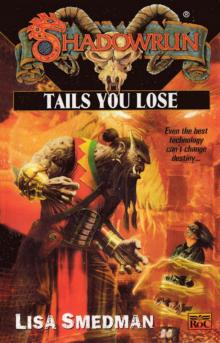 Tails You Lose
Tails You Lose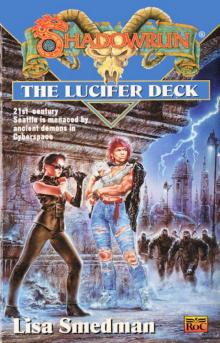 The Lucifer Deck
The Lucifer Deck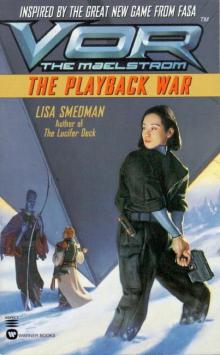 Vor: The Playback War
Vor: The Playback War Forgotten Realms - House of Serpents 1 - Venom's Taste
Forgotten Realms - House of Serpents 1 - Venom's Taste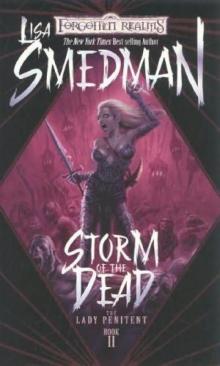 Storm of the Dead зкp-2
Storm of the Dead зкp-2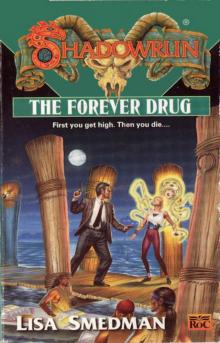 The Forever Drug
The Forever Drug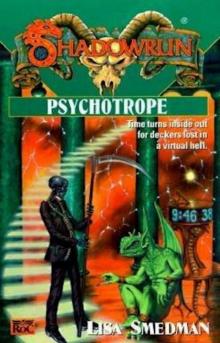 Psychotrope
Psychotrope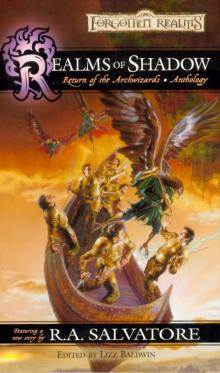 Realms of Shadow a-8
Realms of Shadow a-8 Venom’s Taste hos-1
Venom’s Taste hos-1 Psychotrope s-33
Psychotrope s-33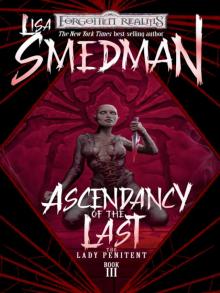 Ascendency of the Last
Ascendency of the Last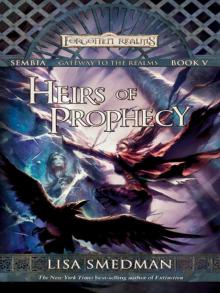 Heirs of Prophecy
Heirs of Prophecy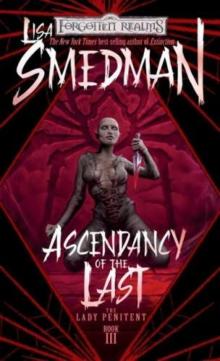 Ascendancy of the Last зкp-3
Ascendancy of the Last зкp-3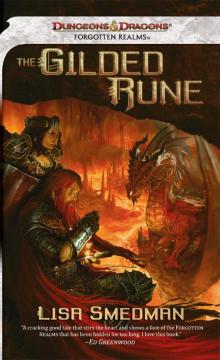 The Gilded Rune (forgotten realms)
The Gilded Rune (forgotten realms)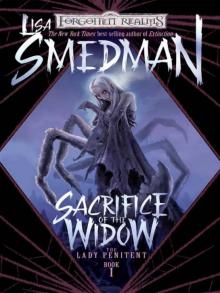 Sacrifice of the Widow: Lady Penitent, Book I
Sacrifice of the Widow: Lady Penitent, Book I The Lucifer desk s-23
The Lucifer desk s-23 Sacrifice of the Widow lp-1
Sacrifice of the Widow lp-1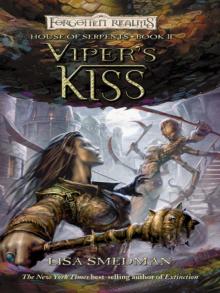 Viper's Kiss
Viper's Kiss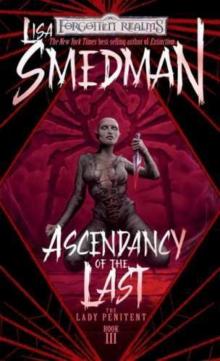 Forgotten Realms - The Lady Penitent - Ascendancy of the Last
Forgotten Realms - The Lady Penitent - Ascendancy of the Last